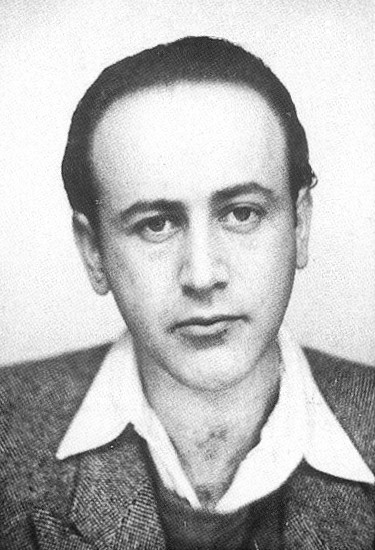Todtnauberg: An Encounter
Event Details
Photo of Paul Celan, public domain, via Wikimedia Commons Arnica,
Event Details

Arnica, eyebright, the
draft from the well with the
star-die on top,in the
Hütte,
Thus begins Paul Celan’s poem Todtnauberg, setting the scene for his meeting with the philosopher Martin Heidegger.
This short poem is Celan’s record of his meeting at the philosopher’s Black Forest retreat in Todtnauberg in 1967. The two men were admirers of each other’s work, though on Celan’s side the admiration was fraught. Celan was a survivor of the European Shoah, carried out by the Third Reich, that claimed the life of both his parents. Living most of his life in France, Celan composed his poetry in German (his mother tongue and the language of his beloved mother), utilising the language that was also infused with the Reich, and which he called “the deathbringing speech” to work through the individual and collective trauma of the Shoah.
Heidegger, one of the monumental figures in European continental philosophy of the twentieth century, had a well known affiliation with the Nazi party which he never denied, redressed, or ever spoke about publicly. Their meeting, not surprisingly, attracted much scrutiny.
The poem, a chronicle of that meeting, closely follows the inscription that Celan left in Heidegger’s visitor’s book: “In the Hütte, with the view from the star in the well, with the hope of a coming word in the heart” (“Ins Hüttenbuch, mit dem Blick auf den Brunnenstern, mit einer Hoffnung auf eines kommendes Wort im Herzen”).
There are many ways to read, interpret and translate the poem, a poem about silence and the hope for words. We will read the poem together, many times, hoping ourselves to come to an understanding and interpretation of this very moving and concise work.
JOINING DETAILS:
- Single meeting study led by Desma Lawrence and Emilia Steuerman
- Wednesday 12 February 2025, 12.00 – 2.00 pm (UK)
- £40 for single meeting with two facilitators
- We will provide the German text with English Translation(s) and background notes on both Celan and Heidegger.
Time
12 February 2025 12:00 pm - 2:00 pm(GMT+00:00)
Location
VIRTUAL - ON ZOOM
